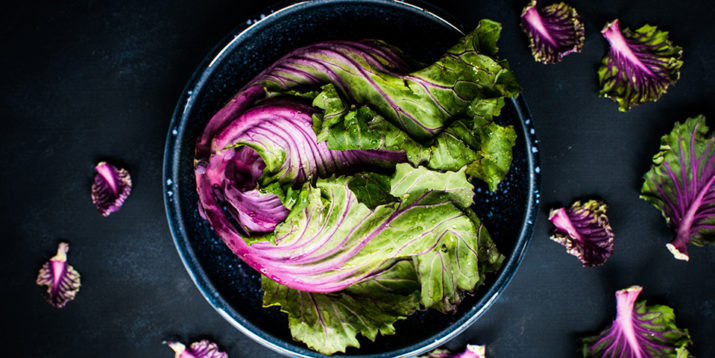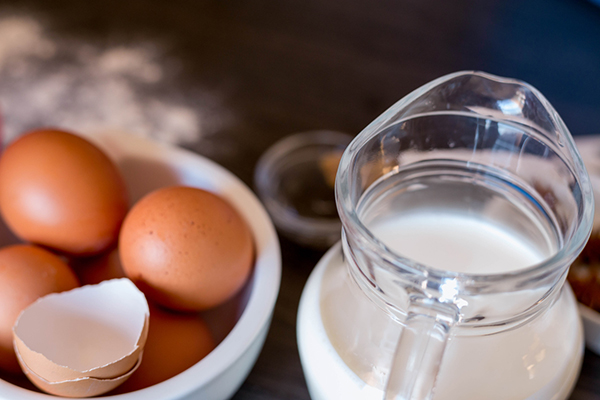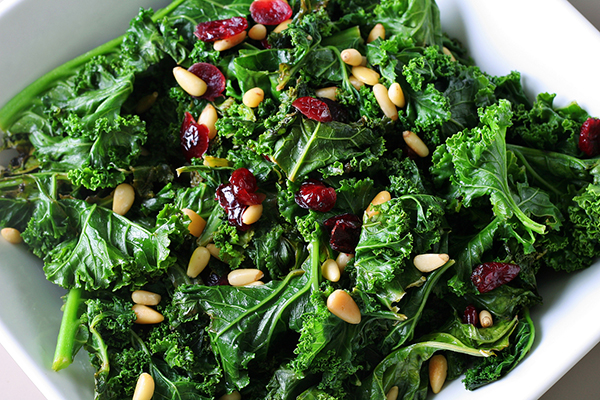What Vegans Need to Know About Calcium

When you think about calcium, milk may be the first thing that comes to mind. Since vegans don’t drink milk (or consume any animal products), it’s easy to assume that they may not get the calcium they need. But is that true?
If you’re ditching dairy and adopting a vegan diet, what do you need to know about calcium? Are vegans at risk for a calcium deficiency?
Learn whether you need to be concerned about your calcium levels as a vegan — and find out just how you can go about getting this essential mineral if you don’t consume dairy.

Are Vegans at Risk for Calcium Deficiency?
Let’s start with the most pressing question: Are vegans at risk for calcium deficiency? Not necessarily, say experts. “It depends on what you eat,” explains Michael Greger, M.D., author of How Not To Die. Just because you don’t eat dairy, that doesn’t mean that you don’t get calcium.
In fact, all plant foods contain calcium, but some have more than others. “Yes, dairy is the number one source of calcium in the American diet, but it’s also the number one source of saturated fat,” says Dr. Greger.
“By getting it from plant sources — which is where the cow gets calcium — you cut out the ‘middle moo’ and get the benefits without the risks. The ‘baggage’ that comes with the calcium that you get from plant foods is fiber, folate, iron, and antioxidants — many of the very nutrients we need more of, but are missing in dairy foods,” he explains.
Why Do I Need Calcium?
Calcium is the most abundant mineral in our body, and 99 percent is in our bones and teeth; the other 1 percent is in our blood and bodily fluids.
Calcium acts like a stage manager, influencing functions all over your body. Its crucial roles include helping trigger muscle contractions, transmitting nerve impulses, secreting hormones, and activating several enzyme-driven reactions.
But its most prevalent role is to keep bones healthy. Calcium, along with many other nutrients (like vitamins D and K and magnesium), helps keep bones strong by maintaining bone mineral density.
In younger women, building bone density from childhood and through the teens and early 20s is an important strategy to keep bones healthy as they age. Women also need to focus on maintaining their bone density during their 30s, 40s, and beyond.
The body maintains very stable levels of calcium in the blood, ensuring that cells that need calcium can get it. When calcium intake from food drops, the body may pull what it needs from the calcium stored in bones, which impacts the strength and density of bones. That’s why not getting enough calcium is associated with poor bone health.

Do Vegans Get Enough Calcium?
“There is enough evidence to consider that calcium should be a nutrient that requires attention by vegans,” says Jack Norris, R.D., the founder of VeganHealth.org.
The Academy of Nutrition and Dietetics notes that calcium intakes among vegans vary widely and can sometimes fall below recommendations. However, vegans who eat mostly a whole food, plant-based diet (i.e., not much processed or junk food), can get all the calcium and other nutrients that their bodies need.
Nutritious food choices are key to maintaining healthy calcium levels. “Labels like vegetarian or vegan only tell me what you don’t eat,” says Dr. Greger. “There are a lot of unhealthy vegetarian foods like French fries, potato chips, and soda pop.”
Vegans who eat lots of junk food can be lacking in many nutrients, including calcium. But vegans aren’t the only ones. Most adults are at risk of not getting enough calcium.
That’s why the 2015 USDA Dietary Guidelines include calcium as one of its “nutrients of public health concern.” Many adults — even those who do eat dairy foods — do not get enough calcium.
How Much Calcium Do You Need?
For decades, there has been an ongoing debate in the nutrition research world about how much calcium you need. In the US, the Recommended Daily Allowance for calcium is between 1,000 and 1,300 mg per day, depending on age and sex.
However, that amount varies among different countries. In the UK, for example, the recommended amount for adults is 700 mg per day.
Key Nutrients for Healthy Bones
When it comes to bone health, calcium isn’t the only nutrient that’s important. Vitamins D and K as well as magnesium are other nutrients for healthy bones.
- Vitamin D is necessary for the body to absorb calcium from the food we eat. It is obtained through sun exposure, but you can also get it from foods, such as fortified dairy-free milk alternatives, egg yolk and fish (specifically fatty fish like salmon), and supplements.
- Vitamin K is also important for bone health. Since it’s present in plant foods like dark leafy greens, a vegan who consumes a healthy, balanced diet will get plenty of vitamin K. (It’s those who don’t eat their greens that have to worry about not getting enough vitamin K.)
- The mineral magnesium also plays a role in bone health. Foods high in magnesium include almonds, cashews, and peanuts, as well as brown rice and pulses like kidney beans, black-eyed peas, and lentils.
Exercise for Bone Health
Beyond what you eat, exercise is as important as nutrients for keeping bones strong, because it can stimulate the cells that build new bone to keep doing their thing.
High-impact exercise, such as jumping, has been shown to promote healthy bone density in the lower body, while strength training or resistance exercise like rock climbing can keep upper-body bones strong.
Some studies have shown that the forearm bones of those who play racket sports are stronger in the arm that holds the racket, too. (Another reason to embrace all the plyometrics in programs like P90X3 and INSANITY.)
Top Vegan Sources of Calcium
The top vegan foods for calcium include dark greens, fortified dairy-free milks, and calcium-set tofu.
There is calcium in all plant foods, but those with the highest amounts that are the most bioavailable are the greens, like kale, mustard greens, bok choy, turnip greens, collards, and watercress, says Norris.
“If you’re not eating about 1.5 cooked cups of these greens a day, then you need to be consuming calcium-fortified plant milk or another calcium-fortified food, like calcium-set tofu,” he says.
(Calcium is often used to help thicken tofu, but check the label, as calcium content can vary among brands of tofu.)
These plant foods also provide moderate amounts of calcium:
- white beans
- almonds
- tahini (sesame seed paste)
- figs
- oranges
(Pro tip: Need some vegan recipe ideas? Check these out and learn how to put together a vegan meal prep.)
How to Maximize Calcium Absorption
According to the Academy of Nutrition and Dietetics, the body absorbs about 30 percent of the calcium in both cow’s milk and plant-based foods like calcium-set tofu and most fortified plant milks. Include plenty of calcium-rich foods in your diet each day to maximize calcium absorption.
It’s unclear whether other nutrients may enhance calcium absorption, but one compound found in some high-calcium foods, oxalates, can inhibit absorption. A few greens, including spinach and Swiss chard, contain oxalates, so eat those for their other nutrients — but choose more bioavailable greens (listed above) and other plant foods for calcium.
The Bottom Line
If you’re a vegan who eats more processed food than fresh, whole foods, then you might not be getting enough calcium. In addition to eating plenty of foods containing calcium, keep your bones healthy by getting enough vitamin D, vitamin K, and magnesium in your healthy diet. And don’t forget about the importance of exercise to keep your bones strong!
